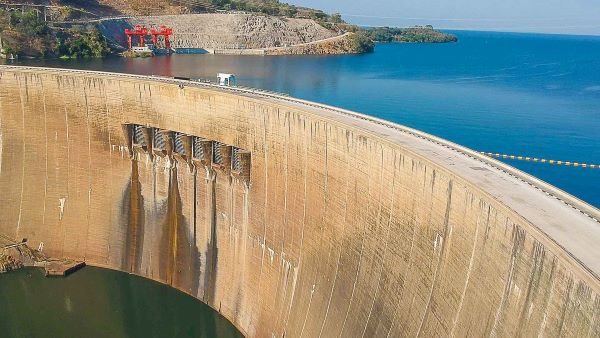The Zambezi River Authority (ZRA) says there has been a decline in water levels due to reduced inflow and minimal rainfall activity in the Kariba catchment area. With a backdrop of below-average rainfall and sluggish inflows, concerns about water availability for power generation have been raised. The authority’s Chief executive Officer Engineer Munyaradzi Munodawafa outlined the recent fluctuations in the water levels of Lake Kariba.
“The Lake level rose from a 1st January 2024 recorded level of 477.24m with 7.80 billion cubic Meters (BCM) of stored usable water, representing a live storage of 12%, to 477.87m with 10.68 BCM of stored usable water or 16.49% live storage recorded on 29th January 2024. During the first week of the month of February 2024, the lake level registered a sluggish increase.
“It began steadily decreasing thereafter due to low inflow and reduced rainfall activity on and around the lake associated with the below average rainfall received under the 2023/2024 rainfall season in the Kariba catchment. Subsequently, the recorded lake level on 6th March was 477.66m with 9.72 billion Cubic Meters (BCM) of stored usable water or 15.00% live storage. On the same date last year, the recorded lake level was slightly higher at 477.68m with 9.81 BCM of stored usable water or 15.15% live storage,” said Engineer Munodawafa.
Engineer Munodawafa attributed the below-normal rainfall to the persisting effects of El Niño weather patterns globally, particularly affecting Southern Africa. “To-date, the Kariba Catchment has recorded below-normal rainfall owing to the persisting effects of El Niño weather conditions globally and over the Southern African region, in particular. According to the predictions published by the 28th meeting of the Southern Africa Regional Climate Outlook Forum (SARCOF-28) at the end of January 2024, indications were that the larger part of the Kariba Catchment was likely to receive Normal-To-Below-Normal Rainfall during the peak of the 2023/24 rainy season i.e. February to April 2024,” he said.
In response to these challenges, the Zambezi River Authority had previously allocated 16 BCM of water for power generation operations at Kariba for the year 2024, to be equally shared between ZESCO Limited and Zimbabwe Power Company (ZPC)/Kariba Hydro Power Company (KHPC). Despite the adverse conditions, Engineer Munodawafa said this allocation remains unchanged, with each utility expected to maintain strict adherence to their respective water allocation thresholds.
Looking ahead, Engineer Munodawafa emphasized the importance of monitoring the hydrometeorological performance of the Kariba Catchment, especially considering the possibility of registering one of the lowest inflow levels on record. The upcoming hydrological review, scheduled for the end of March 2024, he said will factor in the actual performance of the 2023/2024 rainfall season and determine any adjustments to the water allocation for the remainder of the year.



